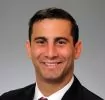- with readers working within the Retail & Leisure industries
- within Government, Public Sector, Coronavirus (COVID-19) and Insurance topic(s)
The Ohio Medical Board just last week adopted new rules for telemedicine prescribing of drugs and controlled substances, allowing providers to prescribe drugs via telemedicine without conducting an in-person examination. Effective March 23, 2017, the new rule 4731-11-09 and rule 7331-11-01 set forth the requirements a physician must follow when prescribing via telemedicine in Ohio.
Prescribing Drugs via Telemedicine
An Ohio physician may prescribe non-controlled substances via telemedicine, without an in-person exam, if the physician satisfies the following nine requirements:
- Establishes the patient's identity and physical location;
- Obtains the patient's informed consent for treatment through remote examination;
- Requests the patient's consent and, if granted, forwards the medical record to the patient's primary care provider or other health care provider, if applicable, or refers the patient to an appropriate health care provider or health care facility;
- Completes a medical evaluation through interaction with the patient that meets the minimal standards of care appropriate to the condition for which the patient presents;
- Establishes a diagnosis and treatment plan, including documentation of necessity for the utilization of a prescription drug, including contraindications to the recommended treatment;
- Documents in the medical record the care provided, patient's consent, medical information, and any referrals made to other providers;
- Provides appropriate follow-up care or recommends follow-up care;
- Makes the medical record of the visit available to the patient; and
- Uses appropriate technology sufficient for the physician to conduct the above as if the medical evaluation occurred during an in-person visit.
Prescribing Controlled Substances via Telemedicine
An Ohio physician may prescribe controlled substances via telemedicine, without an in-person exam, if the physician satisfies the nine steps outlined above and when one of the following six situations exists:
- The patient is an "active patient" of a health care provider who is a colleague of the physician and the controlled substances are provided through an on call or cross coverage arrangement between the health care providers. "Active patient" is a defined term under the new rules and means that "within the previous twenty-four months the physician or other health care provider acting within the scope of their professional license conducted at least one in-person medical evaluation of the patient or an evaluation of the patient through the practice of telemedicine as that term is defined in 21 C.F.R. 1300.04, in effect as of the effective date of this rule."
- The patient is located in a DEA-registered hospital or clinic;
- The patient is being treated by, and in the physical presence of, an Ohio-licensed physician or health care practitioner registered with the DEA;
- The telemedicine consult is conducted by a practitioner who has obtained a DEA special registration for telemedicine;
- A hospice program physician prescribes the controlled substance to a hospice program patient in accordance with the board of pharmacy rules; or
- The physician is the medical director of, or attending physician at, an "institutional facility" (defined in rule 4729-17-01) and 1) the controlled substance is being provided to a person who has been admitted as an inpatient to or is a resident of an institutional facility, and 2) the prescription is transmitted to the pharmacy by a means that is compliant with Ohio board of pharmacy rules.
The above six situations largely mirror exceptions under the federal Ryan Haight Act. Telemedicine advocates have noted the Ryan Haight Act's rules on prescribing controlled substances have hindered contemporary, legitimate telemedicine practices. Members of the American Telemedicine Association have advocated for provider-friendly changes, and the DEA is expected to issue new rules this year, opening a special telemedicine registration for prescribers.
The Buckeye State now joins others (e.g., Delaware, Florida, New Hampshire, and West Virginia) that have carved out express exceptions to allow for telemedicine prescribing of controlled substances. This is encouraging news for providers using telemedicine in their practice, as controlled substances are an important and clinically significant component of certain specialties, including telepsychiatry and hospitalists/emergency medicine.
The content of this article is intended to provide a general guide to the subject matter. Specialist advice should be sought about your specific circumstances.



